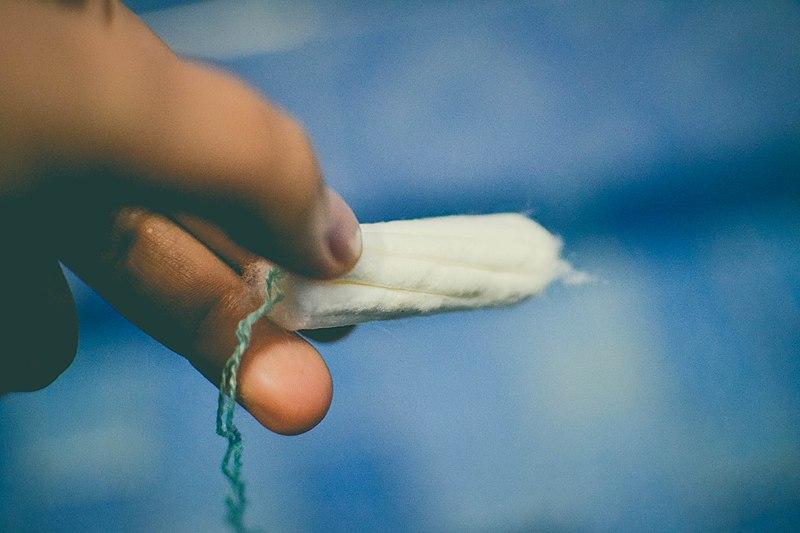Research has shown that 10% of girls in the UK have been unable to afford period products. It costs an average of £8 for sanitary products every month, a cost some women cannot afford.
Forms of the contraceptive pill have been known to cause women to consistently bleed for months at a time, some women can have periods so heavy that they are required to buy large quantities of sanitary products just to cover one period. Women are unable to control the fact they need period products and often need a lot of them! Period product company DAME calculated that the average woman uses 11,0000 to 15,000 sanitary products in her life.
So the questions we should be asking are: should university students with minimum loan be given more in their maintenance loan to cover the cost of the £96 they pay for sanitary products per year? Should women receiving universal credit be given extra to cover these additional living costs? Questions that are unlikely to have been considered in parliament.
On the 24th of November MPs in Scotland made the unanimous decision to make the provision of free sanitary products a legal duty. The decision was pioneered by MP Monica Lennon who has been vocal about ending period poverty for four years now. Lennon expressed her concern amidst the pandemic as the need for free sanitary products became even more apparent. She also pointed out that “women were hit the hardest by austerity”, noting how women are often left to care for family members whilst maintaining a job. Through her campaigning, Lennon successfully outlined the ways crisis brings inequalities between men and women into the light.
The decision to end period poverty in Scotland is powerful. It forms part of the ongoing battle for gender equality that women face all around the world. It’s important that governments consider issues that exclusively affect women, such as period poverty, to show the female population that the government does care about them, despite the fact it, more often than not, does not represent them. Women represented just 34.9% of candidates in the 2016 Scottish election, despite the fact women account for roughly 51.5% of the population of Scotland. The fact that Scotland has had a female political leader since 2014 and has seen campaigns by Monica Lennon to end period poverty since 2016, doesn’t give Scottish women much hope that their concerns are being heard, even with a female MP in charge.
The decision to pass the Period Products Bill will hopefully have a domino effect for the rest of the UK and the world, who aim to follow by Scotland’s example. Since the passing of the bill, the UK government have devised a “period product scheme for schools and colleges in England” to provide free products to students aged 16-19.
It may look like things are looking up for the UK, as parts of the government are taking a step in the right direction. After recently leaving the EU, the UK are able to scrap the 5% tax on sanitary products. Rishi Sunak said he was “proud” to announce this, stating that “sanitary products are essential so it’s right that we do not charge VAT”. It’s reassuring to see that Sunak has changed his mind since voting against forming a strategy to negotiate an exemption from value-added tax on sanitary products with the EU, along with Prime Minister Boris Johnson back in 2015. To add to this, campaigner Laura Coryton points out to The Guardian that Brexit could have actually made things worse for women arguing “if we were to have stayed in the EU, then this piece of legislation would have gone through… then any EU member would be able to axe the tax, not just the UK”. The abolition of tampon tax has been used as a means of promoting pro-Brexit rhetoric, yet again pushing important issues for women to the backbench. It took the departure from the European Union for MPs to finally consider making women’s lives easier, and even when they did, for what? So all the MPs who voted against necessary changes for women can tweet about how happy they are about the changes.
Nisha Chandar-Nair
Featured Image Source: Wikimedia Commons

